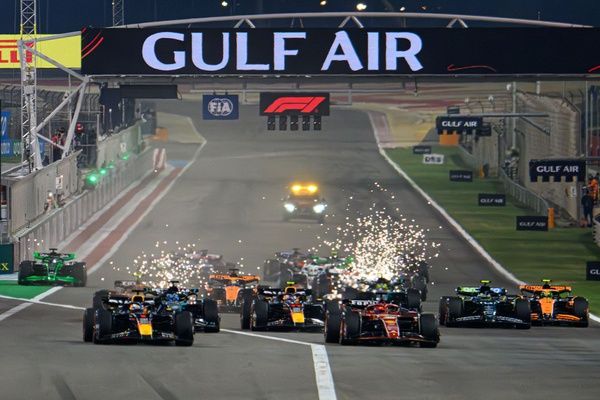FIA and Mercedes team's decisions key to Renault's F1 future
Red Bull team principal Christian Horner fears engine supplier Renault will quit Formula 1 at the end of next season if the current rules remain in place

After a challenge from the teams last year to the FIA's wording of the regulations regarding the power unit, in-season development is currently allowed.
However, for 2016 the FIA has tightened up the rules and no development will be permitted beyond February 28, with the four engine suppliers required to use up their allotted development tokens by that date.
With Mercedes still dominant, Ferrari, Renault and Honda are now pushing for the regulations to be relaxed for next year to ensure they have a chance to potentially make gains as the campaign progresses.
If the regulation remains unaltered, Horner believes that could force Renault's hand and it may walk away.
Asked by AUTOSPORT whether Mercedes would relent, Horner said: "They don't have to obviously, but the situation is it's a precarious point in terms of Renault's commitment to the future.
"If you are effectively shutting that down in February, you are almost waving goodbye to them.
"Mercedes need to have a bit of a grown-up think about it, and the FIA as well, to say what is in the best interests of Formula 1.
"If Formula 1 can afford to lose an engine manufacturer, then stick to February 28."
With the number of development tokens available decreasing as the seasons progress through to 2020, Horner said it makes the February 2016 deadline even more painful.
"From Renault's perspective it is the worst thing for them as the engines are effectively frozen forever after," he added.
"Really, as these regulations still are relatively immature, it would make sense to allow - as this year - development to happen in season."
Horner believes the Canadian Grand Prix highlighted Mercedes' current advantage as seven of the top 10 cars, both in qualifying and the race, were powered by the German manufacturer.
"You've Force India and Lotus [cars] that probably haven't been touched since Melbourne, and it's just a different race," said Horner.
"The power unit influence is highlighted more there than anywhere, and also unfortunately at the next race [in Austria], which is probably the most power-dependent circuit on the calendar.
"Even if you have the chassis and driver it doesn't compensate for the power unit.
"It's significant and very difficult to override."
Be part of the Autosport community
Join the conversationShare Or Save This Story
Subscribe and access Autosport.com with your ad-blocker.
From Formula 1 to MotoGP we report straight from the paddock because we love our sport, just like you. In order to keep delivering our expert journalism, our website uses advertising. Still, we want to give you the opportunity to enjoy an ad-free and tracker-free website and to continue using your adblocker.


















Top Comments